The best version of They Cloned Tyrone producer Stephen ‘Dr’ Love
It all started at Starbucks where They Cloned Tyrone director/co-writer Jules Taylor shared a tinfoil-coated idea with Stephen Love that would evolve into a cultural obsession trending on the world’s biggest streaming platform.
In that moment, Love (who would break into Hollywood as a producer) planted the seeds to a Black film renaissance that boomed with critically-acclaimed Blaxploitation Sci-Fi Comedy They Cloned Tyrone.
A Morehouse man with humble beginnings in Bennettsville, South Carolina, Stephen Love made a series of power moves including landing A-listers Jamie Foxx, John Boyega, and Teyonah Parris in a buzzy film about the uncovering of Government conspiracies in urban cities that sparked a bidding war between major studios.
In a culture-shifting move, Love partnered with MACRO–a multiplatform media company representing the voice and perspectives of Black people and persons of color–that allowed him to maintain creative control before he eventually sold the film to Netflix.
With a hit Netflix movie and big names like Kerry Washington attached to upcoming projects, Love and his production company Made With Love Media rocketed into mainstream Hollywood while paving the way for unique films from gifted Black filmmakers in the near future.
We caught up with the creative dynamo who opened up about They Cloned Tyrone, Hollywood’s Black film renaissance, his biggest Morehouse lesson, THAT David Alan Grier scene, and more in our interview you can enjoy below:
BOSSIP: The legend starts at Starbucks–take me through the process of getting Jamie Foxx, John Boyega, and Teyonah Parris–three stars–in this film.
Yea, man, when Juel first told me about this which was Fall 2017 we had like the logline and whatnot–a couple sentences about it–we definitely were not thinking about this big budget version with Jamie Foxx, John Boyega, and Teyonah Parris. That’s not where our head was. We were like, ‘alright, this will be your first movie as a director that’s trying to make it really modestly and that kinda thing.’ But man, it grew over the years because of those three actors.
Teyonah was first in the sense that she auditioned for it and she was up against tough competition. There was pretty much every African-American actress between the ages of 22-35 that you can imagine who came in to read for it. And it was very, very clear that the unequivocal winner of that process was Teyonah Parris at the end of that.
When she walked out, we were like, ‘that’s her,’ we were literally jumping up and down in the room like, ‘that’s Yo-Yo!’ and this was before she had the Marvel joint coming out and had Wandavision coming out but she had already shot Candyman so the timing was perfect because the movie comes out and she’s already on her way to being a household name.
That happened first and, after we sold the movie to Netflix, Boyega came into play and obviously everybody knew him from Star Wars etc and he was trying to figure out what his next big thing was going to be and was being very strategic and intentional about choosing something that’s meaningful. He raised his hand and we were like, ‘OK, yes.’
And then Jamie Foxx, it was ongoing, like ‘that’s a dream, that’s a dream,’ and then Jamie raised his hand and was like, ‘look, I’m going to come do this.’ He didn’t balk one time at the idea of a first-time director, he loved the script, he loved the idea of the movie, he loved what we all represented being young and Black.
At the time that we sold this movie, I was 29 and Juel was like 31, 32 so we’re these young cats and Jamie was like, ‘I wanna support this, I really believe in this,’ and so he came on and produced with us, too–him and his partner Datari–so it’s been a blessing but those three people and their involvement is what allowed us to making this bigger version of it that I think, ultimately, was the right version.”
BOSSIP: There’s a certain pink-splashed movie that everyone’s saying had the best marketing campaign of the year but I feel like They Cloned Tyrone had the best campaign that everyone should be talking about. It was at every festival. There were multiple versions of John Boyega. In Miami, and different cities, with pop-ups and government-modified chicken. Juvenile was at the Essence Fest party.
Can you talk about your vision for the campaign?
I appreciate that, man. You know, a lot of really smart people worked hard on it and, if it’s cool with you, I’d like to give them a shoutout. Netflix’s marketing department… they do this. They know how to make it hit the culture in a real way and partly because, as a studio, they have a more intimate connection to the audience than most.
So, it’s different than ‘okay, I’ll put a billboard up and hope people go see the movie,’ you know, but the Strong Black Lead department at Netflix is all about highlighting the movies that have Black stars in it. They’re really the machine that steered the ship for for us–specifically, Kevin Stuckey and Chardae Jenkins.
They’re young, Black, and really understood the movie, intimately, so that’s why you see, to your point, there’s another movie’s marketing that people are talking about but ours was more like, ‘okay, how can we just forget about traditional marketing–how can we just be authentic to the movie? How can we be really grassroots with it?’ So, I don’t know if you saw, we tricked out a donk.
So, Donkmaster is from South Carolina–same place I’m from, you know, he’s the best at creating donks and he flipped one for us and we took that thing all over the U.S. It’s still actually traveling.
But my role is–between making movies for years, I’ve always done commercials and music videos and that kinda thing, right? So, the other half of my brain is marketing and I still have a company called the Invisible Collective where we do advertising campaigns and commercials and all that.
And so, when we’re in the room with Netflix talking about ideas, that’s my language, you know, so I get really excited about doing fresh ideas and, ironically, when we pitched this movie in 2018, it was myself, Juel, the director, and his co-writer, Tony, I threw out a couple of cool marketing ideas–one of which was, ‘let’s go to every hood in America’–I mean, this was the elevated budget kind of version (laughs)–‘and take over our favorite chicken spot–let’s go to Chicago and take over Harold’s Chicken on 73rd, let’s go to LA and take over Roscoe’s, let’s go to Atlanta and take over Busy Bee’s and rewrap it as GotDamn! Fried Chicken [the chicken joint in the film].’
And it’s pretty dope to see Netflix was willing to wrap its arms around that idea and turned restaurants in Miami, Atlanta, and LA into GotDamn! Fried Chicken so that’s been pretty dope.
And in the music element of the movie, a lot of people talked about that because it’s not stereotypical–we didn’t go Hip-Hop but we also didn’t go all Old School either we kinda gave you a really unique mix which is intentional on the director’s part, Juel’s part, he’s a musician himself.
And a fun fact that nobody’s talked about yet, there’s a song on our soundtrack–and I’ll leave this Easter egg and hopefully people can go find it–that’s not in the movie and has Juel all over it, he’s singing and rapping, it’s his song, basically.
But music has also been a big part of the marketing because of his background as a musician before making movies. We were all really intentional about trying to bring his vision to fruition so I ended up in a lot of those conversations with Republic Records who did the soundtrack for us and the music department at Netfix to figure out how to make music that lands with the culture and stand the test of time.
BOSSIP: I feel like we’re in a Black film renaissance and you’re a major part of that. You worked with (Creed II director) Stephen Caple Jr. on his first film The Land and he goes on to direct big budget summer blockbuster Transformers: Rise of the Beasts. It’s really dope to see.
Can you speak on the importance of Black film right now? In this time?
Yea, for sure. First of all, I appreciate you doing that digging, man, that’s dope. This is a sidenote: Me, Steven Caple, Juel Taylor, Tony Rettenmaier–Juel’s co-writer, we all were in grad school and film school at the same time. We were homies, and I produced Caple’s first movie and then fast-forward when Caple got Creed II he fought to have Juel write it for him. So, that’s how the industry realized this dude is a really serious screenwriter, right? Because he crushed it on Creed II as a writer so we all try to help each other, man. That’s what it’s all about.
And to your point about the new renaissance of Black film and what it means right now, I think a lot of what it means is cooperative economics, right? It’s the same concept but let’s call it cooperative creativity where it’s like, ‘how do you take the idea of cooperative economics and move it into cooperative creativity by just leveraging each other and helping each other really elevate?’ You know, and it’s not like, ‘Oh, we’re just helping the homies’–all our homies just happen to be really, really talented, you know?
So that’s what it’s all about–I think Black film now–because of that, and it’s not just our cohort that’s helping each other, but because of that energy in our generation, the sky’s the limit, right? People want to see what we have to say–all of us are really bullish about not only telling stories that have been told before but telling some very original stories to write, you know?”
BOSSIP: What’s the biggest lesson you learned at Morehouse College?
The biggest lesson I learned at Morehouse is you got to pay what you owe. And I’m not just talking about tuition. But you got to pay what you owe to the community. No matter what you study at Morehouse they ingrain a sense of being a renaissance man and being well-traveled, well-spoken, well-dressed, and well-balanced and also encouraged you to engage your community in a real way.
And it became very clear that the content of my stories needed to be responsible and have a level of consciousness and a level of understanding that’s laced under that entertainment value.
That’s why I immediately knew this film would deeply connect and give us a chance to play with some ideas that, hopefully, resonate with people.
BOSSIP: How are you staying focused right now with the success of They Cloned Tyrone and buzz surrounding future projects?
I’m super focused because the mission is not about a movie or the movies, right? The mission has always been to leave the industry better than I found it, right? And because that’s the mission it’s easy to stay focused because I know that having these different movies and different TV shows–they all embody what I call sugar with the medicine, right? That’s the ethos for our slate of projects.
And it just means that we don’t want to be preachy, we don’t want to be didactic, etc., we don’t want to be a film where you get off of work after a long shift and you get home and now you got to do some more work by watching the movie. That’s not the intent.
We want you to be able to enjoy it, eat some popcorn, hang out with your family, and enjoy the movie or the TV show and then afterwards you realize, ‘wait, I think I was being fed, too.’ You know, at the core of it maybe there was some nugget of wisdom or life lesson or in Tyrone exploring societal ills and social issues but so heavily draped with the entertainment value that you just had a ball and that’s really the goal, man.
And the thing that keeps me focused on a day-to-day basis is just my family. I know that I stand on the shoulders of ancestors and people that are still in the business who have come before me. My family is what keeps me grounded–my wife, my parents, God kids. That element is what keeps me grounded.
And I lowkey just told you my secret development team, too–when I want to know if something is fire or not–you know, besides my own gut, I ask my wife. She grew up in South Central LA and my parents are from the country in South Carolina and I got cousins and family all over everywhere else.
So I have a good kind of focus group let’s call it, right? That help me when I say, ‘hey, is this dope? Is this cool? Or is this some Hollywood stuff that nobody in the real world will care about,’ yea.
BOSSIP: And your dad is a pastor–what did he say about the David Alan Grier scene in the film?
(laughs) you know what’s funny about that? I was nervous to show my dad that scene. I showed it to him a year ago, I just showed him that clip like, ‘what do you think about this?’ And it’s funny you bring that up because when we were pitching the movie, people were asking, ‘how are we going to talk about this scene to the audience?’ because, largely, Black people are either religious or spiritual in some way, right?
So, how are we going to explain to them that we’re not making fun of the church–we’re not trying to be blasphemous at all–how are we going to explain that? And I didn’t really have the answer at the time so I showed it to my dad and I was nervous, man, I was sweating, I wasn’t in the room when he was watching.
But afterwards, we had a discussion and he actually liked it because what we what we realized is, it’s not making fun of it, it’s actually saying, this is what happens when we’re not in control of our own relationship with God, right? Or we’re not in control of our own spirituality and we’re allowing man to adulterate that instead of connecting to the real source then anything can happen including this ridiculous conspiracy that happens in the church in They Cloned Tyrone.
And, honestly, that’s the only cosign I needed because, after that, I was like, ‘OK, cool, I know how to talk about this’ (laughs).
BOSSIP: That scene felt like a love letter to what David Alan Grier does best as a comedian, underrated legend and icon
I would 100% agree–David Alan Grier, without a doubt, is a icon that is severely underrated. Man, he’s obviously been around for a very long time. He’s professional on set and he and Jamie have a really good relationship and that’s how we got David to come do it at the height of COVID and he walked on set and just owned it.
Juel did an interview recently where he talked about how when David came on set, he said, ‘Hey man, you mind if I just kind of warm up?’ I just wanna warm up and get the crowd into it.’ I’ll never forget it. Even that instinct, because he’s a comedian he knows you don’t want to start telling jokes to a dry crowd, you want to get them loose, right?
So in doing that, man, he proceeded to do an impromptu 10-minute sermon and it was not scripted. It wasn’t him running his lines. It was just him doing an impromptu sermon on the spot. I watched him transform, and another easter egg for you: I’m actually in the church scene sitting right behind Jamie Foxx cuttin’ up.
I just remember telling Juel, ‘you gon’ have to put me in a movie today, dawg. This gon’ be too fun to miss out’ and my wife is actually in the scene too. She’s actually the tambourine player. We had a lot of fun shooting that, man. It was a lot of fun.
BOSSIP: There are so many Easter eggs in this film and I was wondering if there’s a Wu-Tang influence on John Boyega’s look in the film. It reminded me of early ODB and Method Man.
Oh, interesting! He does give you ODB, huh? I don’t know we’d have to ask our our costume designer and our hair department head. That’s an interesting thought. Now you got me wondering. I gotta go back and watch it myself.
They Cloned Tyrone is now streaming exclusively on Netflix.
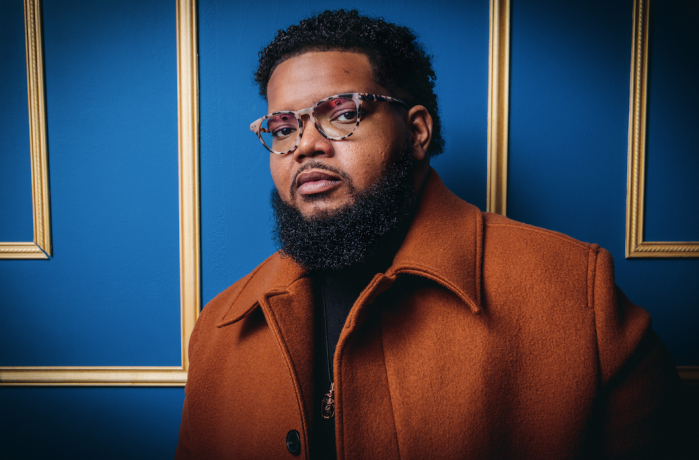
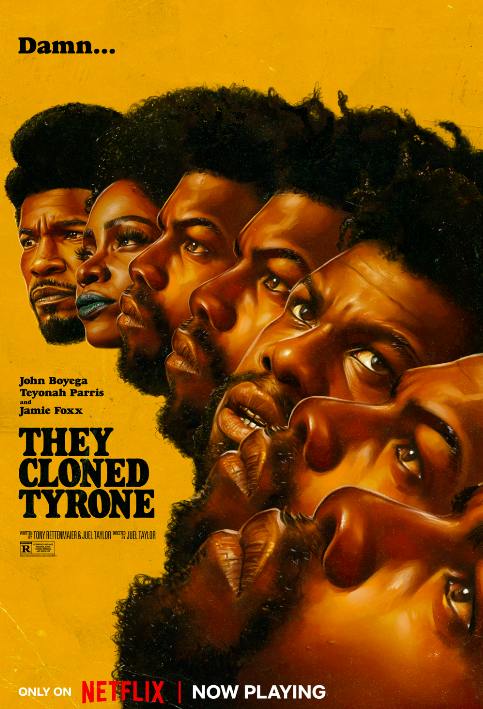
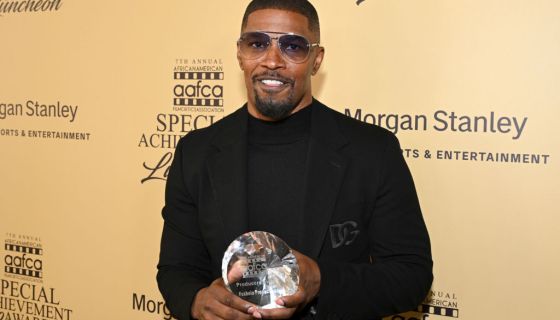
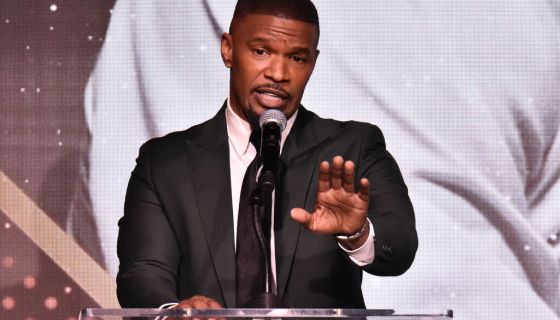
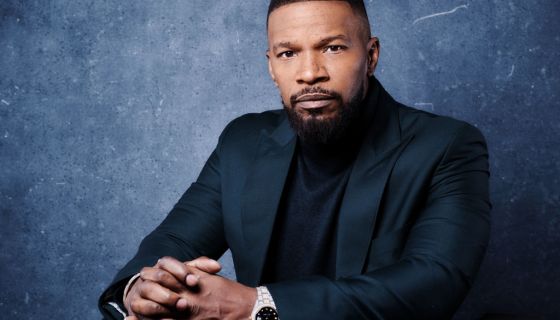
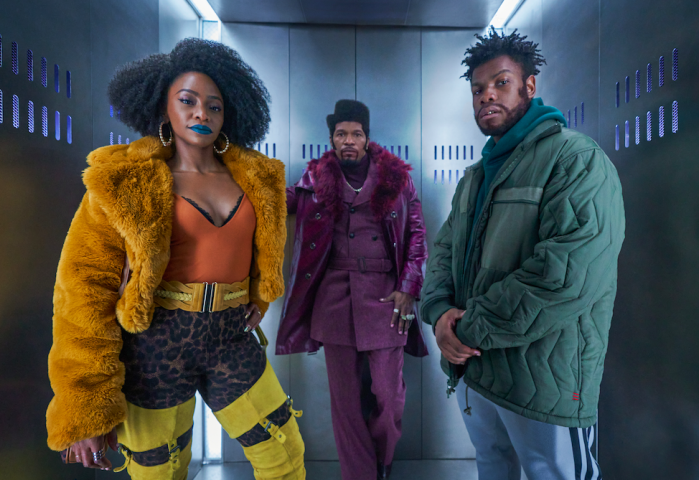








Comments
Bossip Comment Policy
Please read our Comment Policy before commenting.